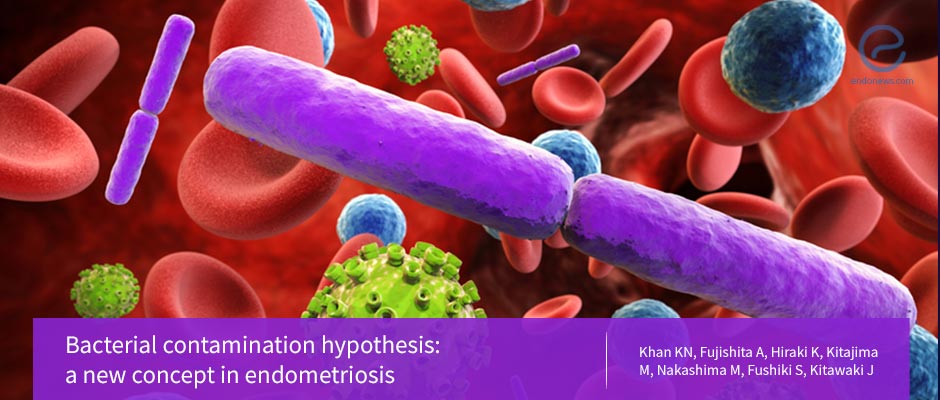Could Endometriosis Be Caused by Bacteria?
May 18, 2018
Researchers propose a new concept called the bacterial contamination hypothesis.
Key Points
Highlights:
- Bacterial endotoxins could be linked to the development of endometriosis by increased inflammation. GnRH agonists, which are often used to treat endometriosis may contribute to the problem.
Importance:
- Using probiotics or antibiotics taken orally or applied through the vagina could protect women from vaginal or uterine infections and improve the outcome of endometriosis.
What's done here:
- Researchers analyzed the menstrual blood and peritoneal fluid of women with and without endometriosis in terms of bacterial infections.
- They also assessed the effect of GnRH agonists in the colonization of the uterus by bacteria.
- The levels of endotoxins were measured by a method called the Limulus amoebocyte lysate test
Key results:
- The menstrual blood was highly contaminated with E. coli, and the endometrial samples were colonized by other bacteria
- The concentration of endotoxin was four to six times higher in the menstrual blood of women with endometriosis compared to those without endometriosis
- Treatment with GnRH agonist further worsened the colonization of the uterus by bacteria
Limitations:
- This is the first study that proposes that bacterial infections might be linked to endometriosis. Further research is needed to test this hypothesis.
Lay Summary
A new concept called the bacterial contamination hypothesis in endometriosis has been proposed for the first time by researchers in Japan.
This means that new potential therapies approaches could exist for this condition in addition to the conventional estrogen-suppressing therapies.
The team led by Dr. Jo Kitawaki at the Kyoto Prefectural University of Medicine in Japan measured the levels of endotoxin in the menstrual blood and peritoneal fluid, of women with and without endometriosis. Endotoxins are toxic substance released by some bacteria when they disintegrate and die.
The researchers used a method called the Limulus amoebocyte lysate test to measure levels of endotoxins. They also cultured menstrual blood and endometrial samples in the laboratory and checked the presence of bacteria to investigate the potential role of these bacteria in the development of endometriosis.
Finally, they investigated the effect of gonadotropin-releasing hormone (GnRH) agonists, which have been used to treat women with endometriosis for more than 20 years, on the colonization of the uterus by bacteria and the occurrence of endometritis. They found that the menstrual blood was highly contaminated with E. coli and that the endometrial samples were colonized with other bacteria. The concentration of endotoxin was four to six times higher in the menstrual blood of women with endometriosis compared to those without endometriosis. Treatment with GnRH agonist further worsened the colonization of the uterus by bacteria potentially leading to endometriosis.
The authors proposed that endotoxins may be linked to the development of endometriosis by causing increased inflammation. A cross-talk between inflammation and ovarian steroids such as GnRH or the stress reaction may also be involved, they said.
They concluded that these findings “may hint to some future therapeutic potential” in the management, as well as the prevention of the recurrence of endometriosis.
They suggested that the application of probiotics or antibiotics directly inside the vagina, or the use of these by mouth could offer some protection against vaginal or uterine infections therefore potentially improving the quality of life and fertility of women with endometriosis.
They added that more research is needed to strengthen the concept proposed in this study for the management of endometriosis.
Research Source: https://www.ncbi.nlm.nih.gov/pubmed/29692669
endometriosis bacteria E.coli gonadotropin-releasing hormone (GnRH) agonists endotoxin inflammation probiotics antibiotics menstrual blood
DISCLAIMER
EndoNews highlights the latest peer-reviewed scientific research and medical literature that focuses on endometriosis. We are unbiased in our summaries of recently-published endometriosis research. EndoNews does not provide medical advice or opinions on the best form of treatment. We highly stress the importance of not using EndoNews as a substitute for seeking an experienced physician.<< Previous Article

